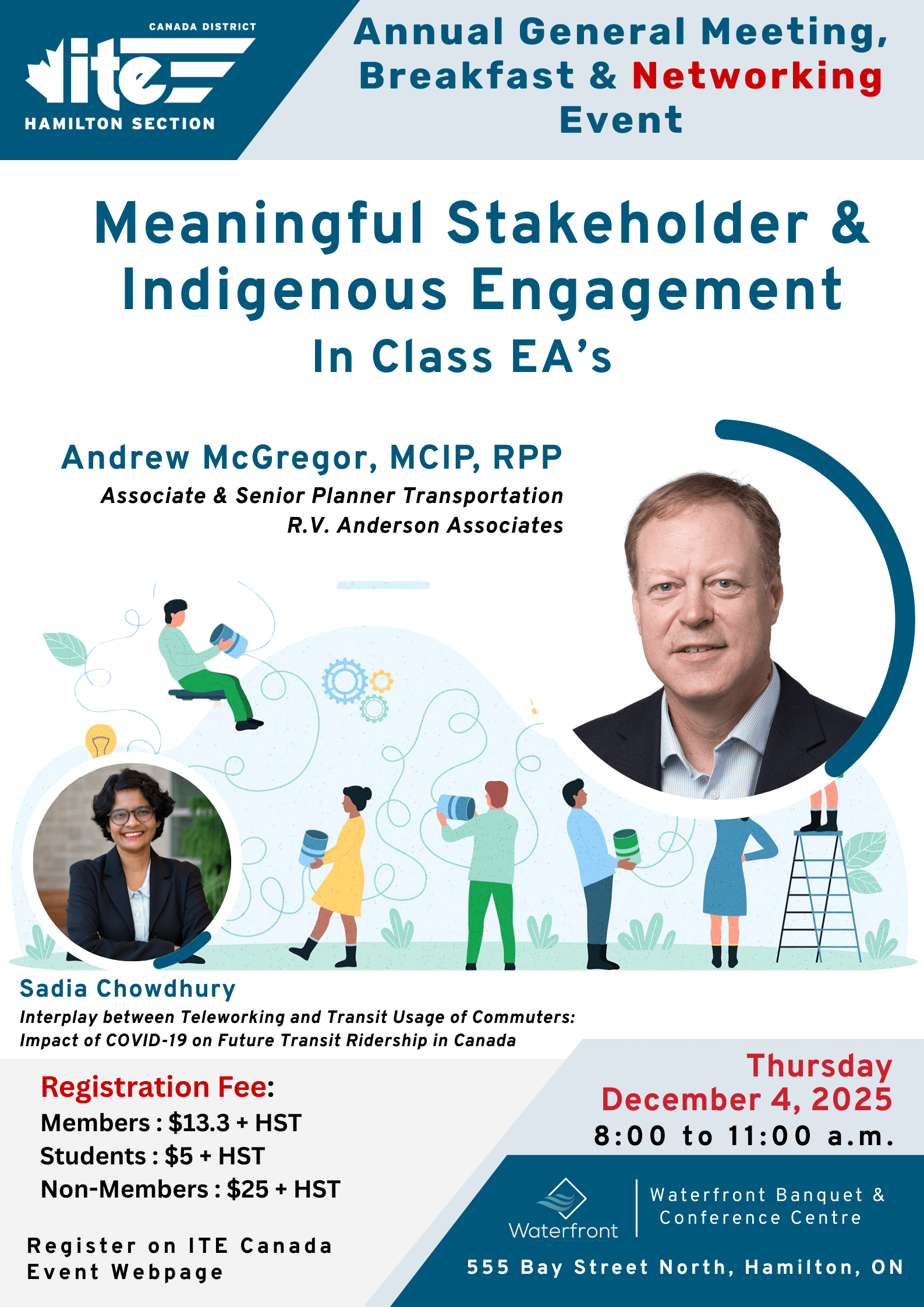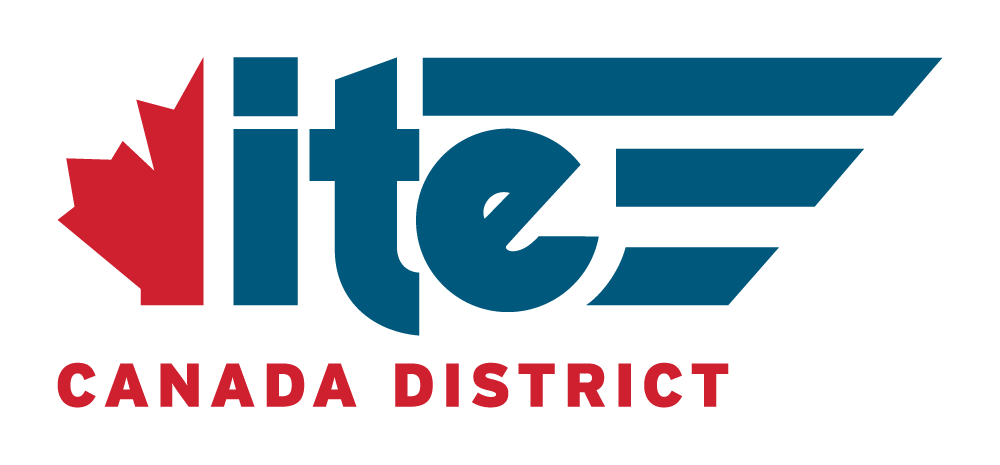
- This event has passed.
ITE Hamilton Section AGM, Breakfast and Networking Event

Join Us for the 2025 ITE Hamilton Section Annual General Meeting!
Date and Time: December 4, 2025, 8:00-11:00 a.m.
Location: Waterfront Banquet & Conference Centre, 555 Bay Street North, Hamilton, ON
==Ticket sales will close December 2, end of day==
Join us for the 2025 ITE Hamilton Section Annual General Meeting, where breakfast and networking will set the stage for a productive morning. In addition to the AGM, attendees will hear a keynote presentation on meaningful stakeholder and Indigenous engagement, and will have the opportunity to explore a student poster session showcasing cutting‑edge research on post‑pandemic transit trends. This blend of nourishment, connection, and insightful content makes this morning an unmissable event for anyone invested in Hamilton’s transportation future.
Keynote Presentation: Meaningful Stakeholder & Indigenous Engagement in Class EA’s
Andrew McGregor: An Associate of RV Anderson Associates, Andrew is a Senior Planner and Project Manager with extensive experience in managing environmental assessments (EAs) and obtaining approvals for transportation and municipal infrastructure projects. As an EA practitioner for over 20 years, Andrew has gained significant knowledge and experience in effective communication with stakeholders, Indigenous communities, and technical agencies. Through the application of various approaches to community engagement, Andrew has helped secure approvals for municipal, provincial, and federal projects, particularly in the field of transportation. Andrew is well versed with environmental and planning legislation including the Ontario Environmental Assessment Act, Impact Assessment Act, the Ontario Environmental Protection Act, and the Planning Act.
 Poster Session: Interplay between Teleworking and Transit Usage of Commuters: Impact of COVID-19 on Future Transit Ridership in Canada
Poster Session: Interplay between Teleworking and Transit Usage of Commuters: Impact of COVID-19 on Future Transit Ridership in Canada
Sadia Chowdhury: 4th year PhD candidate at the Transportation Research Lab, McMaster University, and a student intern partnered with the City of Hamilton. As a transit nerd, Sadia is curious about how to create a transit-friendly community. Her research explores the changes in transit usage in Canada throughout the pandemic, with an emphasis on the changes in transit pass ownership, transit usage frequency, and mode substitution behavior.
